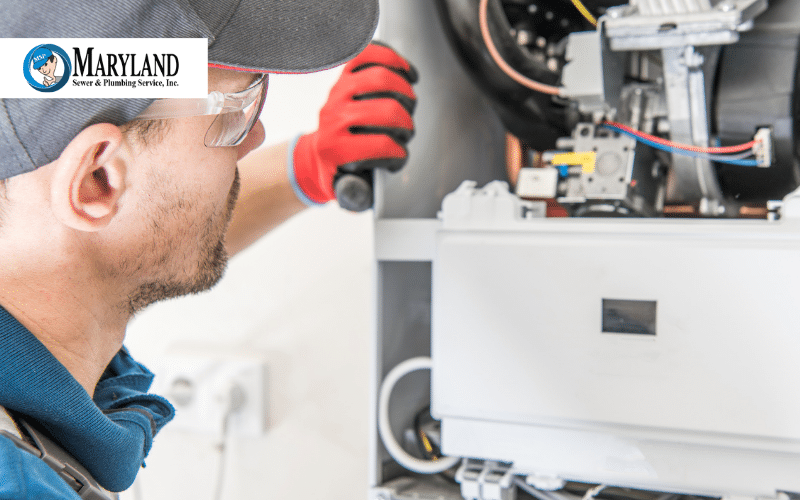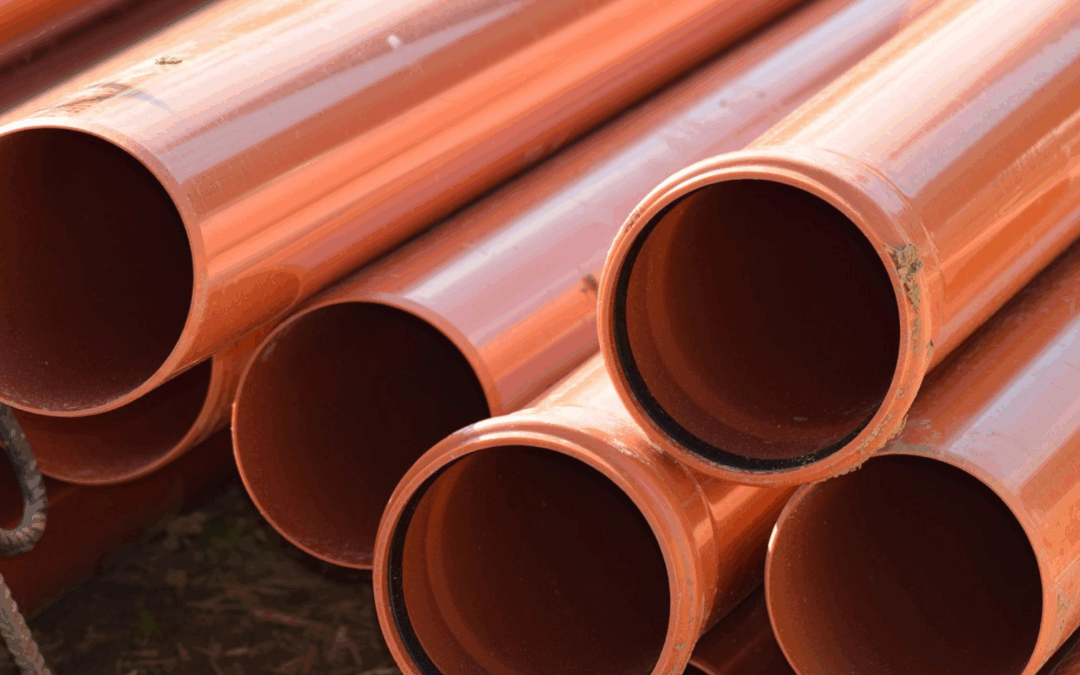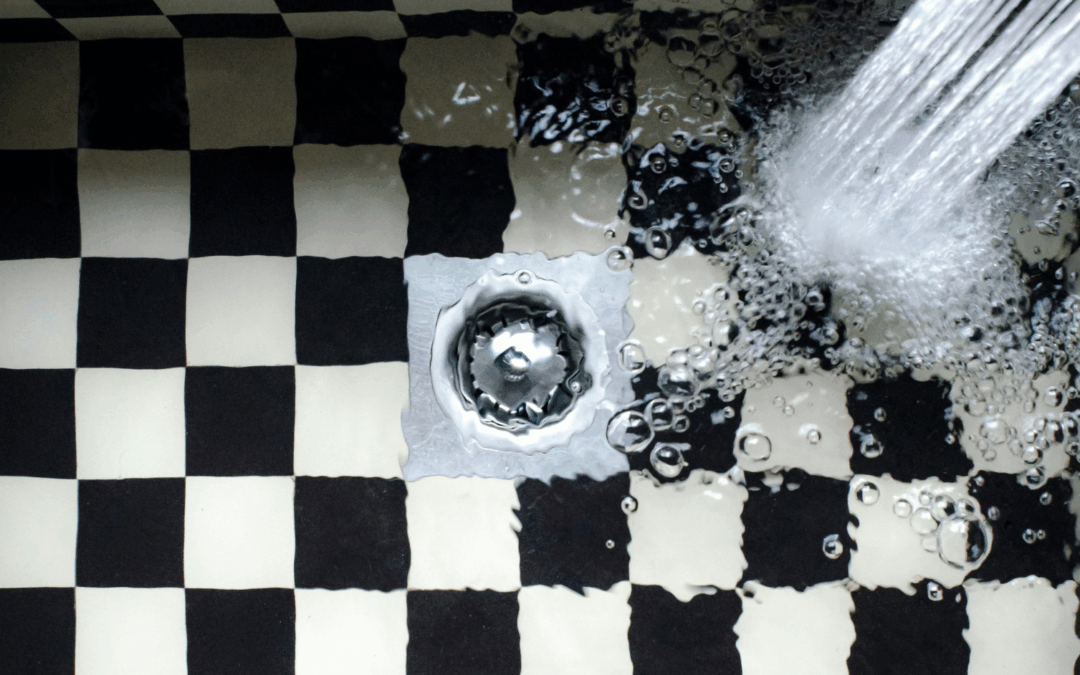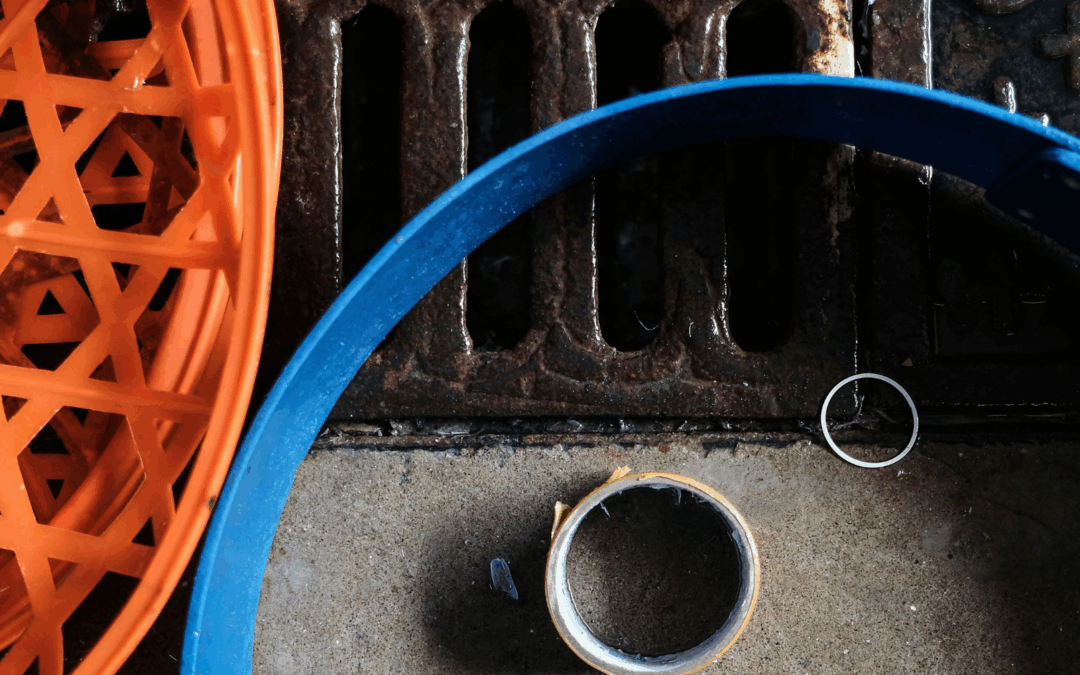When your hot water runs cold, it might be time for a water heater replacement. Whether you’re a homeowner, a DIY enthusiast, or a property manager, understanding how to tackle water heater replacement can save you money and ensure your home remains comfortable. This guide will walk you through everything you need to know about replacing your water heater, from choosing the right type to installation tips.
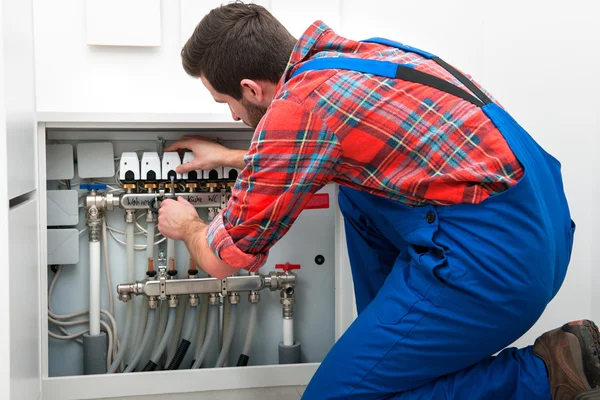
Understanding Your Current Water Heater
Before you jump into replacing your water heater, it’s essential to understand what you currently have. Most homes use either tank water heaters or newer tankless water heaters. Tank water heaters store hot water in a large tank, while tankless models heat water on demand. Consider the age and efficiency of your current water heater to determine if it’s time for an upgrade.
Schedule Service Online
Get a free estimate so you know what you're signing up for
"*" indicates required fields
For Emergency Services Call: 410-255-9300
Most traditional tank water heaters have an average life of 10 to 15 years. If your unit is within this range and showing signs of wear, it’s probably time for a replacement. Look for leaks, inconsistent hot water supply, or unusual noises as indicators that your water heater is on its last legs. Evaluating your existing system helps you make informed decisions on whether to repair or replace.
Types of Water Heaters to Consider
When it comes to water heater replacement, you’ll encounter several types, each with its own benefits. The most common options include gas water heaters, electric water heaters, heat pump water heaters, and tankless water heaters.
Gas water heaters are popular for their efficiency and relatively lower operating costs compared to electric models. They require a gas line and proper ventilation but deliver hot water quickly. Electric water heaters, on the other hand, are easy to install and maintain, making them suitable for homes without gas access.
A heat pump water heater is known for their energy efficiency, as they transfer heat rather than generate it. These units can save you money on energy bills, though they may require more space for installation. Tankless water heaters offer on-demand hot water, are compact, and can be more energy-efficient than traditional tanks. However, they often come with a higher upfront cost.
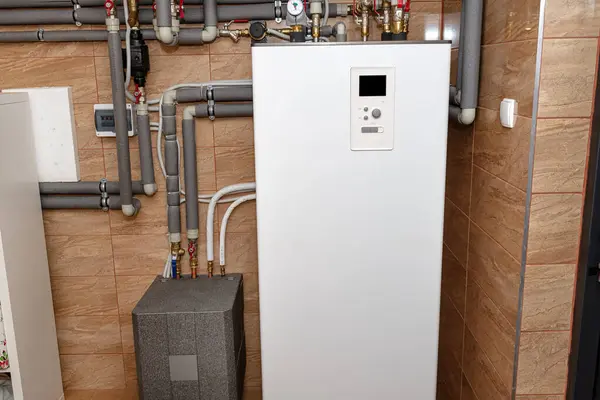
Deciding When to Replace Your Water Heater
Deciding when to replace your water heater depends on various factors, including its age, performance, and repair costs. If your water heater is over a decade old and frequently needs repairs, replacement might be more cost-effective in the long run. An inefficient unit can lead to higher energy bills, so upgrading to a modern, energy-efficient model can save money over time.
Consider the hot water demands of your household. If you’re constantly running out of hot water, it may be time to upgrade to a larger tank or a tankless water heater model. Additionally, if your current water heater is leaking or showing signs of rust, immediate replacement is necessary to prevent water damage.
Calculating the Water Heater Replacement Cost
One of the primary concerns for homeowners is the cost of replacing a water heater. The total price depends on several factors, including the type of heater, installation costs, and any additional work required. On average, water heater replacement costs can range from $500 to $3,000, with tankless models typically on the higher end.
The cost of the new unit itself varies by type and brand. For instance, gas water heaters may have a different price point than an electric water heater or tankless models. Installation costs depend on the complexity of the job, whether additional plumbing work or upgrades to the gas line, gas dryer or gas stove are needed.
Don’t forget to factor in permits and disposal fees for the old tank. Some plumbing companies offer package deals that include installation, permits, and removal of the old water heater. Comparing quotes from multiple licensed plumbers ensures you get the best deal.
Choosing the Right Size and Capacity
Selecting the right size and capacity for your water heater is crucial for meeting your household’s hot water needs efficiently. Consider the number of bathrooms, family size, and daily hot water usage when determining the appropriate tank size.
For traditional tank water heaters, a rule of thumb is to choose a unit with a capacity of 40 to 50 gallons for a typical family of four. Tankless water heaters are rated by the gallons per minute (GPM) they can produce. Evaluate your peak hot water demand to ensure the unit you choose can handle simultaneous tasks like showering and running the dishwasher.
Consult with a local plumber or expert to assess your specific requirements and recommend the best option. Oversized units waste energy, while undersized ones may not meet your needs adequately.
DIY vs. Professional Water Heater Installation
If you’re a DIY enthusiast, you might consider installing your new water heater yourself. While this can save on the installation cost, it’s essential to have a clear understanding of plumbing and electrical work. Incorrect installation can lead to leaks, scalding risks, or even void warranties.
Professional installation by a licensed plumber ensures the job is done safely and correctly. Experienced plumbers have the tools and knowledge to handle any challenges, such as gas line connections or venting requirements. They can also provide valuable advice on maintenance and energy-saving tips.
Evaluate your skills and comfort level with such work before deciding. If you opt for DIY, make sure to follow all safety guidelines and local building codes.

MD Sewer and Plumbing Water Heater Replacement Services
When it’s time to replace your water heater, MD Sewer and Plumbing provides expert services to ensure a seamless transition. Our experienced technicians begin by assessing your current setup and recommending the best options tailored to your home’s needs and your budget. We carry a wide range of high-quality water heaters, including energy-efficient options, ensuring you find the perfect fit.
During the replacement process, our team prioritizes safety and efficiency. We handle all necessary permits and compliance with local codes, giving you peace of mind knowing the installation meets the highest standards. Our technicians will remove your old unit and install the new one with precision, ensuring proper connections and optimum functionality.
Trust MD Sewer and Plumbing for a hassle-free water heater replacement that delivers long-term reliability and energy savings.
Understanding Energy Efficiency Ratings
Energy efficiency is a crucial consideration when selecting a new water heater. Modern units are designed to be more energy-efficient, reducing your household’s environmental impact and lowering utility bills. Look for models with a high energy factor (EF) rating, which indicates better energy efficiency.
Gas water heaters typically have a lower EF than electric models, but advanced features like power vent systems can improve efficiency. Tankless water heaters are often the most efficient option compared to a tank water heater, as they only heat water when needed, eliminating standby energy losses.
Research brands known for their efficiency, such as Bradford White, and compare product ratings to find the best fit for your home. Investing in an energy-efficient model pays off in savings over the heater’s lifespan.
Managing the Water Heater Installation Process
Once you’ve chosen a water heater, managing the installation process smoothly is key to ensuring everything goes as planned. Coordinate with your plumber to schedule installation at a convenient time and prepare the installation area by clearing clutter or obstructions.
Discuss any specific preferences with your plumber, such as desired temperature settings or placement of the unit. Ensure all necessary permits are obtained before starting the installation. During the process, be available to answer questions and provide access to water lines and electrical connections.
After installation, review the work with the plumber to understand how to operate and maintain your new water heater. Request documentation for warranties and any maintenance tips they recommend.
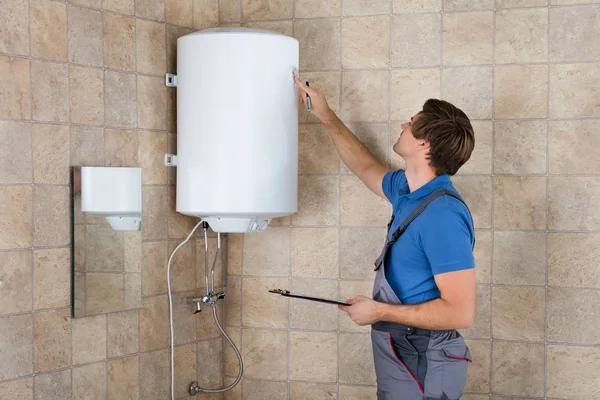
Maintaining Your New Water Heater
Proper maintenance extends the lifespan of your water heater and ensures optimal performance. Regularly inspect the unit for leaks, corrosion, or unusual noises. Flushing the tank annually removes sediment buildup, improving efficiency and preventing damage.
Check the anode rod every few years and replace it if necessary to prevent tank corrosion. Test the pressure relief valve to ensure it’s working correctly and inspect the gas valve for any signs of wear if you have a gas water heater.
Consider scheduling routine maintenance with a plumbing company to catch potential issues early. Simple tasks like adjusting the temperature settings or insulating pipes can also help save energy and reduce costs.
Addressing Common Water Heater Issues
Even with proper maintenance, occasional issues can arise with your water heater. Knowing how to address these problems can prevent further damage and costly repairs. Common issues include inadequate hot water, strange noises, and leaks.
If your unit isn’t producing enough hot water, check the thermostat settings and ensure the unit is sized correctly for your needs. Sediment buildup can cause noise; flushing the tank often resolves this problem. Leaks may indicate a more serious issue, such as a corroded tank, requiring professional intervention.
Consult your water heater’s manual for troubleshooting tips or contact a licensed plumber for assistance. Prompt attention to minor issues prevents them from escalating into major problems.
Exploring Advanced Water Heater Technologies
Advancements in water heater technology provide new opportunities for homeowners to improve energy efficiency and convenience. Heat pump water heaters use electricity to move heat rather than generate it, reducing energy consumption significantly.
Smart water heaters offer remote control via smartphone apps, allowing you to adjust settings and monitor energy usage. These units can integrate with smart home systems for enhanced convenience and efficiency.
Research innovative technologies and consider upgrading when your current unit reaches the end of its lifespan. While they may have a higher initial cost, the long-term savings and convenience make them worthwhile investments.
Navigating Warranties and Lifespan Expectations
Understanding warranties and lifespan expectations is essential when purchasing a new water heater. Most manufacturers offer warranties ranging from 6 to 12 years, covering parts and labor for specific issues. Review warranty terms carefully and register your unit to ensure coverage.
Regular maintenance and proper use can extend your water heater’s lifespan. On average, tank water heaters last 10 to 15 years, while tankless models can last up to 20 years or more with proper care.
Plan for eventual replacement by setting aside funds over time. Keeping records of maintenance and repairs helps identify when it’s time to consider a new unit, ensuring you always have reliable access to hot water.
Resources and Educational Links
Expanding your knowledge about water heater maintenance, replacement, and new technologies is beneficial for making informed decisions. The following resources and educational links provide valuable information to guide you:
- Energy.gov‘s Water Heating Page: This government resource offers insights into different types of water heaters, energy-saving tips, and federal efficiency standards. Visit Energy.gov to learn more about improving the efficiency of your water heater.
- AHRI’s Directory of Certified Product Performance: The Air-Conditioning, Heating, and Refrigeration Institute provides a searchable database that helps you compare the performance and efficiency of different water heaters. Access the directory at ahrinet.org.
- Homeowner’s Guide to Hot water heaters: This comprehensive guide from a leading home improvement website covers everything from choosing the right water heater to proper maintenance practices. Find the guide on This Old House.
- Smart Home Beginner’s Guide: Learn how integrating smart technologies can enhance the efficiency and convenience of your water heater with this guide available at Smart Home Magazine.
- DIY Water Heater Maintenance Tips: If you prefer hands-on learning, explore step-by-step maintenance tutorials through popular channels like YouTube by searching for “water heater maintenance.”
These resources offer comprehensive information and practical advice to help you manage your water heating system effectively. Whether you’re considering an upgrade or seeking efficient maintenance practices, these educational links serve as a valuable starting point.

Conclusion
Replacing a water heater may seem daunting, but with the right knowledge and preparation, it becomes a manageable task. By understanding your options, evaluating costs, and prioritizing energy efficiency, you can make informed decisions that benefit your home and budget.
Whether you choose to tackle the installation yourself or hire a licensed plumber, the key is to prioritize safety and quality. With proper maintenance and attention to detail, your new water heater will provide reliable hot water for years to come.
Stay informed about advancements in water heating technology to ensure your home remains at the forefront of efficiency and comfort. For further guidance or to explore specific products, consider reaching out to local plumbing companies or visiting big box stores for expert advice.

